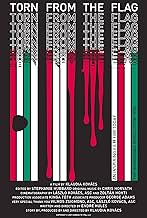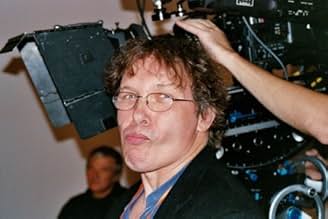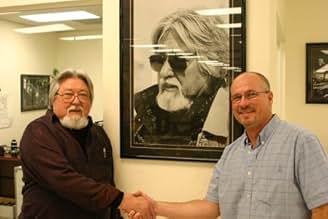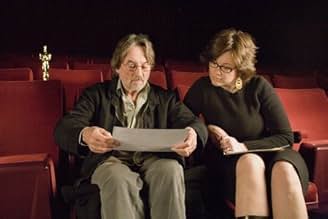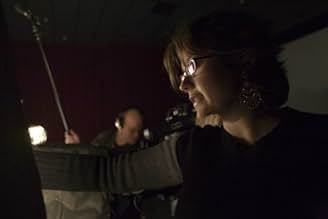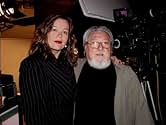Adicionar um enredo no seu idiomaA sociopolitical historical documentary-thriller about the international decline of communism and the 1956 Hungarian Revolution.A sociopolitical historical documentary-thriller about the international decline of communism and the 1956 Hungarian Revolution.A sociopolitical historical documentary-thriller about the international decline of communism and the 1956 Hungarian Revolution.
- Direção
- Roteiristas
- Artistas
- Prêmios
- 5 vitórias e 1 indicação no total
Leonid Brezhnev
- Self
- (cenas de arquivo)
Winston Churchill
- Self
- (cenas de arquivo)
Mikhail Gorbachev
- Self
- (cenas de arquivo)
Nikita Khrushchev
- Self
- (cenas de arquivo)
Ronald Reagan
- Self
- (cenas de arquivo)
Franklin D. Roosevelt
- Self
- (cenas de arquivo)
Joseph Stalin
- Self
- (cenas de arquivo)
- (as Iosif Stalin)
- Direção
- Roteiristas
- Elenco e equipe completos
- Produção, bilheteria e muito mais no IMDbPro
Avaliações em destaque
This film lends perspective to anyone who is too young to know about the events that led to the Soviet domination of Eastern Europe at the end of WWII. Klaudia Kovacs has combined actual footage of the days of revolution (amazing that it was taken) that is really extraordinary. People tell their own stories about a cause that most of us don't know about and make you wonder if you would have half the courage that the Hungarians had to face a military machine. This movie is so well done. Courage, honor and politics collide in a wonderful film. Bring tissue. Stories of sacrifice, torture and loss are real, but you leave this film with gratitude for freedom and inspiration, too.
For anyone who doubts the evil barbarity of communism they should see Torn from the Flag, an excellent documentary that begins with the defeat of Nazi Fascism, the initial euphoria of Soviet "liberation", followed by the brutal oppression of the Hungarian people which led to the primary focus of the film the Hungarian Revolution in 1956. The film uses "never- before-seen-in-the west" footage filmed during the 1956 revolution by award winning cinematographers Laszlo Kovacs and Vilmos Zsigmond. From my knowledge and reading of history, the documentary is historically correct and the writers took great pains to interview a wide spectrum of diplomats, freedom fighters, Russian and Hungarian soldiers, members of the police and AVO. They weave the testimonies, the actual footage and archival material into an accurate portrayal of history. The documentary runs for 91 minutes and is scored with 80 minutes of music. I highly recommend it to all.
The Hungarian uprising of 1956 was the first time a people spontaneously overthrew a Communist government and successfully attained freedom -- even if only for a dozen days. The complex tale of how it came to be, and what contributed both to its success and to the all too short-lived duration of that success, combines a host of factors ranging from cynical geopolitical calculation to the individual initiatives of private citizens who discovered that they were not, after all, lacking in power. "Torn from the Flag" makes the myriad strands of the story clear -- even to someone unfamiliar with the history -- in its 97 minutes: and that, by itself, makes it an astonishing achievement.
It is, however, a great deal more. It presents a remarkably balanced account of a subject that still excites visceral passions more than half a century after the event. It offers moments of intense (and intensely moving) human connection, as participants relive their political, moral, spiritual, and physical journeys. And, in reels shot during the revolution by two film students -- Laszlo Kovacs and Vilmos Zsigmond -- it also offers instants of heart-stoppingly beautiful cinema, even when the images are of conflict, destruction, and death. The editing (reducing more than 90 hours of footage to under 100 minutes, still making it all comprehensible), the music (original scoring complementing a brilliantly chosen array of sources -- not least, using perfectly selected passages from Shostakovich's 11th symphony to complement martial scenes), and, above all, the people who gave of their time and their selves to be interviewed, make this a film to contemplate long, long after the house lights come up.
Nobody should think that this film merely rehashes an old tale of no current relevance: the people of Myanmar and Pakistan (to name just two examples) today face situations similar in many respects to that of Hungary 51 years ago.
Kudos to the indefatigable Klaudia Kovacs and her team for surmounting the odds in a nine-year struggle to complete this effort. The result is eminently worth it.
It is, however, a great deal more. It presents a remarkably balanced account of a subject that still excites visceral passions more than half a century after the event. It offers moments of intense (and intensely moving) human connection, as participants relive their political, moral, spiritual, and physical journeys. And, in reels shot during the revolution by two film students -- Laszlo Kovacs and Vilmos Zsigmond -- it also offers instants of heart-stoppingly beautiful cinema, even when the images are of conflict, destruction, and death. The editing (reducing more than 90 hours of footage to under 100 minutes, still making it all comprehensible), the music (original scoring complementing a brilliantly chosen array of sources -- not least, using perfectly selected passages from Shostakovich's 11th symphony to complement martial scenes), and, above all, the people who gave of their time and their selves to be interviewed, make this a film to contemplate long, long after the house lights come up.
Nobody should think that this film merely rehashes an old tale of no current relevance: the people of Myanmar and Pakistan (to name just two examples) today face situations similar in many respects to that of Hungary 51 years ago.
Kudos to the indefatigable Klaudia Kovacs and her team for surmounting the odds in a nine-year struggle to complete this effort. The result is eminently worth it.
10eloedl
Klaudia Kovacs, an enterprising young woman from Hungary creates a well balanced documentary of the Hungarian Revolution of 1956.
Although born years after the portrayed history-changing events took place, Klaudia was successful in presenting this lesson in history not only against the Hungarian background and other events throughout the world but also in the time line between 1946 and 1989.
In order to gather her information and facts for said documentary, she interviewed numerous participants of the revolution in Hungary as well as movers and shakers of international history. We hear not only from freedom-fighters, biographers of Russian and US world leaders, Russian political figures, Henry Kissinger and others presenting their take on those memorable days.
The documentary is fast paced, no unnecessary fluff. English subtitles, when and wherever necessary, are excellent. For those in the audience who's only language is English it is smooth sailing, even though there is some Hungarian, Italian and Russian. The film keeps you riveted to your seat from its beginning to its end.
Fifty years after the uprising of a ten-million nation against a heavily armored two-hundred million superpower and a gap of almost two generations Ms. Kovacs succeeded in writing / producing this unique film, with a special perspective which is lauded by former freedom-fighters. We could not have portrayed it better.
In comparing this film to others on the same subject, the 1956 Hungarian Revolution, I have concluded that it can not be compared. It is so different. I feel also, as far as violence is concerned, that there is far less shown in this film then in the news-reports coming from present day Iraq.
This is a film that should be seen and studied by young and old alike, by all those searching for democracy, and by those who fear the loss of democracy.
I have published on the Internet a full critical review of this movie in English as well as in Hungarian. If interested, you may contact me via e-mail.
Although born years after the portrayed history-changing events took place, Klaudia was successful in presenting this lesson in history not only against the Hungarian background and other events throughout the world but also in the time line between 1946 and 1989.
In order to gather her information and facts for said documentary, she interviewed numerous participants of the revolution in Hungary as well as movers and shakers of international history. We hear not only from freedom-fighters, biographers of Russian and US world leaders, Russian political figures, Henry Kissinger and others presenting their take on those memorable days.
The documentary is fast paced, no unnecessary fluff. English subtitles, when and wherever necessary, are excellent. For those in the audience who's only language is English it is smooth sailing, even though there is some Hungarian, Italian and Russian. The film keeps you riveted to your seat from its beginning to its end.
Fifty years after the uprising of a ten-million nation against a heavily armored two-hundred million superpower and a gap of almost two generations Ms. Kovacs succeeded in writing / producing this unique film, with a special perspective which is lauded by former freedom-fighters. We could not have portrayed it better.
In comparing this film to others on the same subject, the 1956 Hungarian Revolution, I have concluded that it can not be compared. It is so different. I feel also, as far as violence is concerned, that there is far less shown in this film then in the news-reports coming from present day Iraq.
This is a film that should be seen and studied by young and old alike, by all those searching for democracy, and by those who fear the loss of democracy.
I have published on the Internet a full critical review of this movie in English as well as in Hungarian. If interested, you may contact me via e-mail.
Torn from the Flag - How can I convey in words the emotion I felt and the education I received watching this documentary and do it justice?
This documentary film shows the dramatic events which led to the Hungarian Revolution of 1956 and consequently the collapse of the USSR Communist state decades later. The producers interviewed several actual Freedom Fighters and other participants with various points of view, so Torn from the Flag is not a mere repetition of the same news stories of the Hungarian Revolution we have heard many times before. In fact, in 90 minutes, the audience is shocked, brought to tears, witnesses the bloody struggle and the apparent short-lived victory which was achieved by the Freedom Fighters. Days later, the Hungarians' joy of freedom and hope for independence was brutally crushed by a merciless, overbearing dictatorial superpower, which was followed by severe retribution by the new communist government. Desperation replaced hope in Hungary, and the world stood by and did nothing. Why did the free world allow this suppression of liberty?
This story must be told and kept alive so that current generations better understand what occurred and future generations do not forget this struggle for freedom.
Thank you, Ms.Kovacs and company for this valiant production!
This documentary film shows the dramatic events which led to the Hungarian Revolution of 1956 and consequently the collapse of the USSR Communist state decades later. The producers interviewed several actual Freedom Fighters and other participants with various points of view, so Torn from the Flag is not a mere repetition of the same news stories of the Hungarian Revolution we have heard many times before. In fact, in 90 minutes, the audience is shocked, brought to tears, witnesses the bloody struggle and the apparent short-lived victory which was achieved by the Freedom Fighters. Days later, the Hungarians' joy of freedom and hope for independence was brutally crushed by a merciless, overbearing dictatorial superpower, which was followed by severe retribution by the new communist government. Desperation replaced hope in Hungary, and the world stood by and did nothing. Why did the free world allow this suppression of liberty?
This story must be told and kept alive so that current generations better understand what occurred and future generations do not forget this struggle for freedom.
Thank you, Ms.Kovacs and company for this valiant production!
Você sabia?
- CuriosidadesThe last film of legendary cinematographer László Kovács.
Principais escolhas
Faça login para avaliar e ver a lista de recomendações personalizadas
Detalhes
- Data de lançamento
- País de origem
- Centrais de atendimento oficiais
- Idioma
- Também conhecido como
- A lyukas zászló
- Locações de filme
- Empresa de produção
- Consulte mais créditos da empresa na IMDbPro
Bilheteria
- Orçamento
- US$ 1.700.000 (estimativa)
- Tempo de duração
- 1 h 37 min(97 min)
- Cor
- Proporção
- 16:9 HD
Contribua para esta página
Sugerir uma alteração ou adicionar conteúdo ausente


